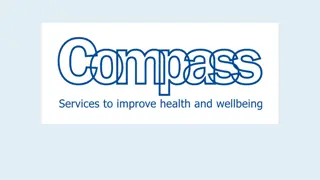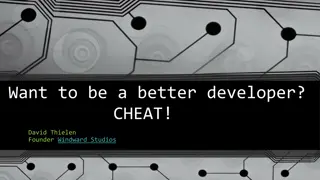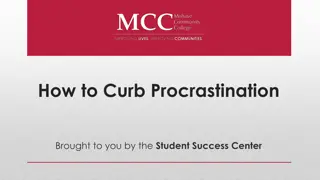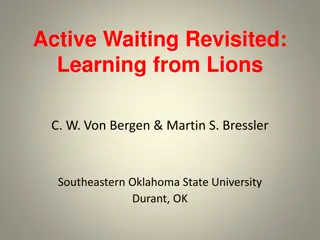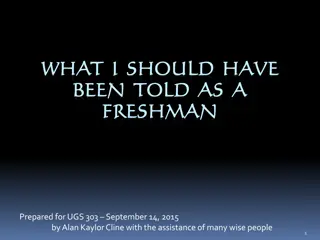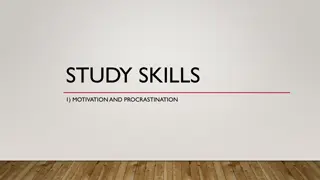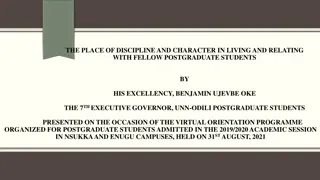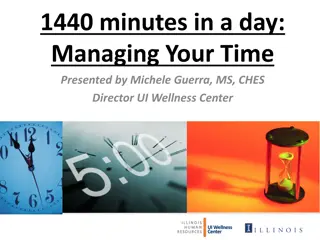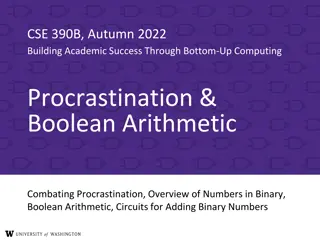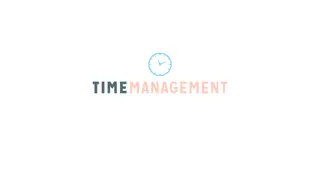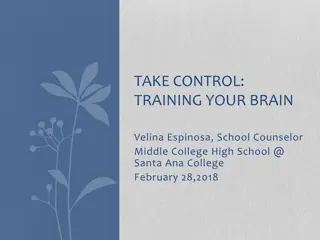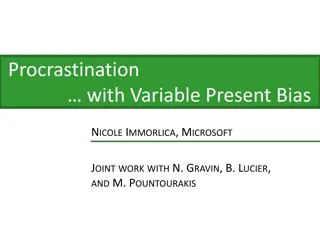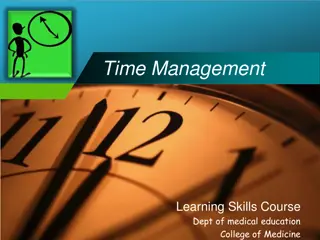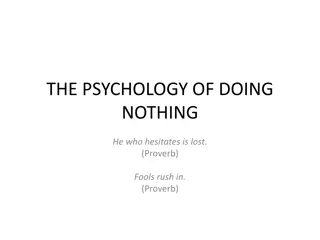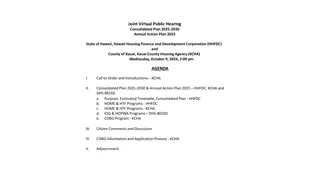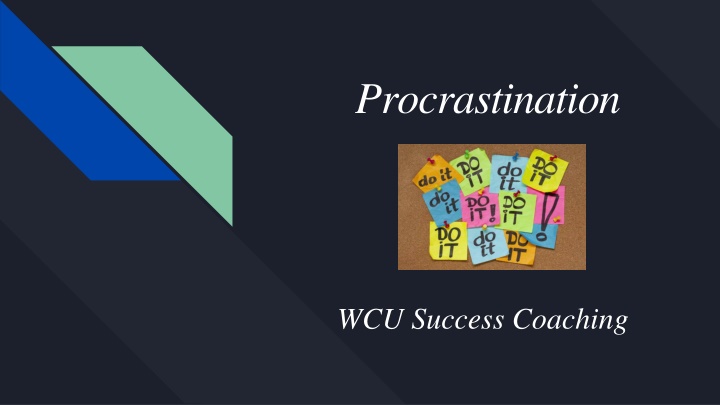
Procrastination and How to Overcome It
Explore the reasons behind procrastination, the impact it can have, and strategies to combat it effectively. Learn why we procrastinate, common triggers, and the importance of self-regulation in overcoming this common challenge.
Download Presentation

Please find below an Image/Link to download the presentation.
The content on the website is provided AS IS for your information and personal use only. It may not be sold, licensed, or shared on other websites without obtaining consent from the author. If you encounter any issues during the download, it is possible that the publisher has removed the file from their server.
You are allowed to download the files provided on this website for personal or commercial use, subject to the condition that they are used lawfully. All files are the property of their respective owners.
The content on the website is provided AS IS for your information and personal use only. It may not be sold, licensed, or shared on other websites without obtaining consent from the author.
E N D
Presentation Transcript
Procrastination WCU Success Coaching
What is Procrastination? Why we keep putting things off, despite the consequences? Don't worry; we all do it 1. Procrastination is the act of delaying or putting off tasks until the last minute or past their deadline. It's not just a time management problem. Researchers suggest that it's a failure in self-regulation that leads us to act irrationally 2.Passive Procrastinators: Delay the task because they have trouble making decisions and acting on them 3.Active procrastinators: Delay the task purposefully because working under pressure allows them to "feel challenged and motivated . (K. Cherry, 2024)
Why Do we Procrastinate? 1. Not knowing what needs to be done 2.Not knowing how to do something 3.Not wanting to do something 4.Not caring if it gets done or not 5. Not caring when something gets done 6. Not feeling in the mood to do it 7. Being in the habit of waiting until the last minute 8. Believing that you work better under pressure 9. Thinking that you can finish it at the last minute 10. Lacking the initiative to get started 11. Forgetting 12. Blaming sickness or poor health 13. Waiting for the right moment 14. Needing time to think about the task 15. Delaying one task in favor of working on another (K.Cherry, 2024)
How Common Is Procrastination? While some people are better at motivating themselves to tackle unpleasant tasks, procrastination is a highly prevalent problem. Among college students, nearly all admitted to procrastinating sometimes, while 75% described themselves as habitual procrastinators. (K. Cherry, 2024)
Whats Next? We often assume that projects won't take as long to finish as they really will - leads to a false sense of security - believing that we still have plenty of time to complete these tasks Biggest factor contributing to procrastination is the notion that we have to feel inspired or motivated to work on a task at a particular moment Waiting for motivation isn't the only problem that contributes to procrastination: Academics, Present Bias, Depression, OCD, ADHD are also contributing factors Procrastination can have a serious impact on many life areas, including a person's mental and social health, professional, and financial well-being (K. Cherry, 2024)
Advice on Completing Tasks- Hosted by therapist Amy Morin, LCSW, this episode of The Verywell Mind Podcast. Click Link! https://megaphone.link/MERE2827488043 Make a to-do list: To help keep you on track, consider placing a due date next to each item. Take baby steps: Break down the items on your list into small, manageable steps so that your tasks don t seem so overwhelming. Recognize the warning signs: Pay attention to any thoughts of procrastination and do your best to resist the urge. If you begin to think about procrastinating, force yourself to spend a few minutes working on your task. Eliminate distraction: Ask yourself what pulls your attention away the most whether it's Instagram, Facebook updates, or the local news and turn off those sources of distraction. Pat yourself on the back: When you finish an item on your to-do list on time, congratulate yourself and reward yourself by indulging in something you find fun. MEET WITH A SUCCESS COACH! (K. Cherry, 2024)
Thank You! To receive more assistance on ways to avoid Procrastination, Schedule with a Success Coach! 220 Lawrence Center Phone: (610) 436-1067 Email: successcoaching@wcupa.edu
Reference: Cherry, K. (2024, July 7). What is procrastination?. Verywell Mind. https://www.verywellmind.com/the-psychology-of-procrastination-2795944

